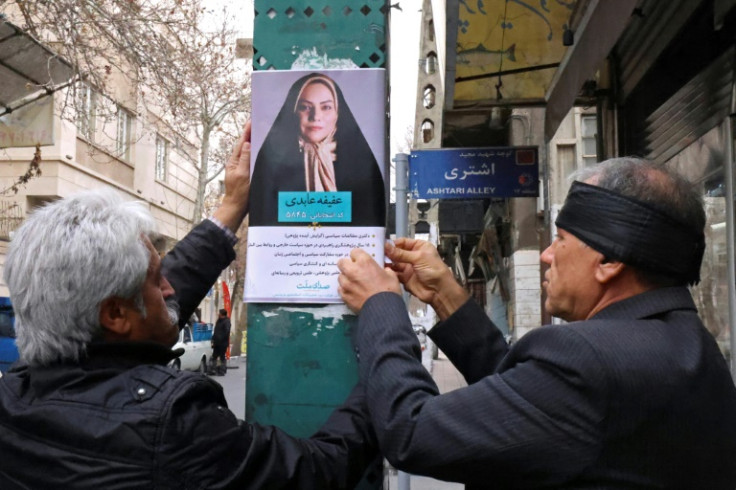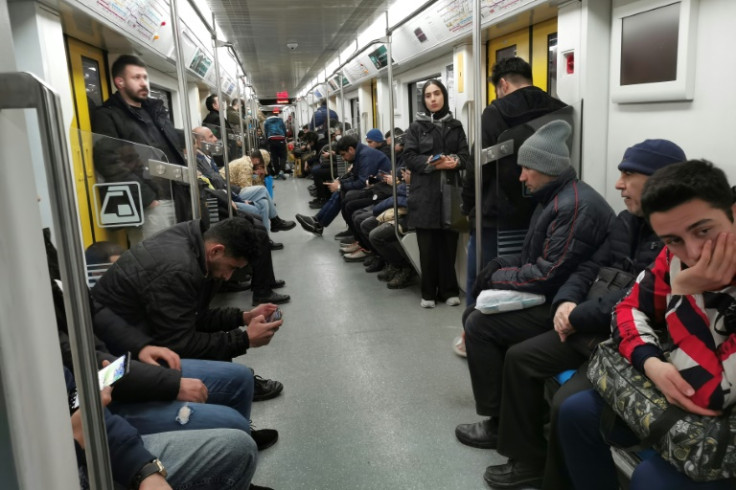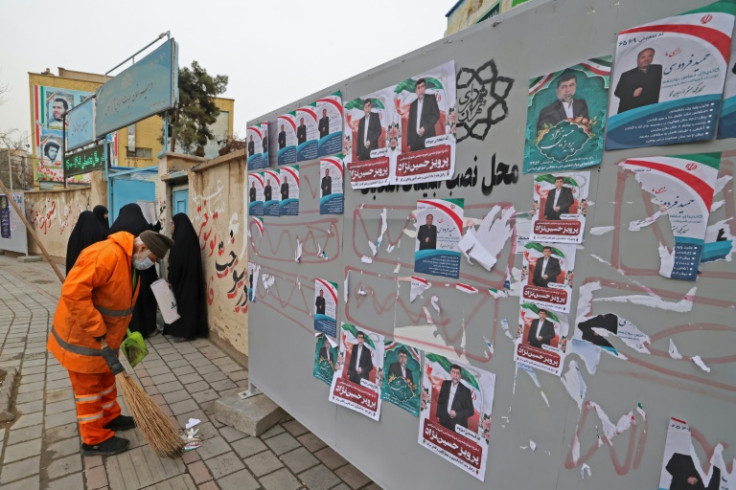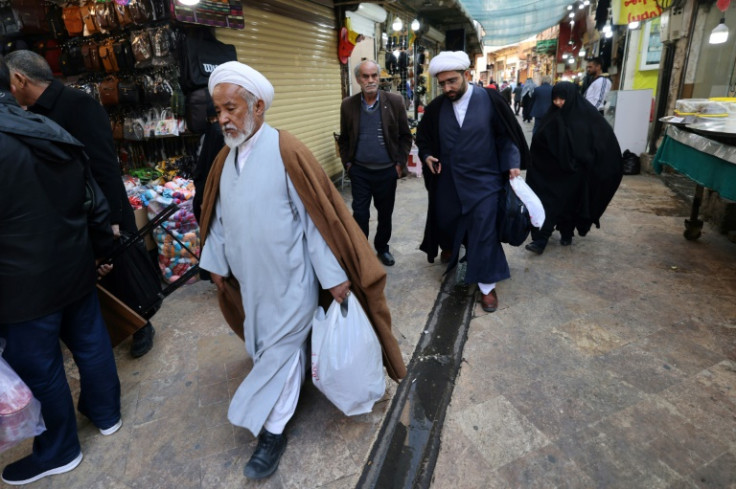Economic Pain Casts Dark Shadow As Iranians Go To Vote

As Iranians head to the polls for legislative and other elections on Friday, candidates have promised them on campaign posters to "fight corruption" and "fix the economy".
In the minds of many voters, economic hardship is indeed the most burning issue as the Islamic republic suffers under punishing international sanctions and rapid inflation.
At Tehran's storied Grand Bazaar, many shoppers are simply wandering the warren of aisles without buying anything, as prices have skyrocketed in recent years.
Many doubt that a quick solution is in sight -- among them 62-year-old retiree Aliasghari, who said he wished the politicians would "stop the empty slogans".
"The economic situation is extremely troubling," said the pensioner walking through the labyrinthine market, who asked not to be fully named as he discussed the sensitive issue.
Citizens "are hearing a lot of fabrications and they have lost their trust in voting," he said, adding that "none of my family members are willing to take part in the elections".
Voters are due to pick new members of Iran's 290-seat legislature and the Assembly of Experts, a key body that appoints the supreme leader, a post held by Ayatollah Ali Khamenei, 84.
The vote comes amid high regional tensions as Iran's arch foe Israel fights the Palestinian militant group Hamas in Gaza and related conflicts have flared across the Middle East.
But for many in Iran, a country of over 85 million people, the biggest issue is much closer to home: annual inflation near 50 percent, high consumer prices and a falling currency.
Just because Iranians elect a new parliament, "things won't become cheaper," said fashion vendor Fatima, 21, who complained that many people can no longer afford new clothes.
"People's economic situation is terrible," she said, adding that she would cast her vote anyway, despite having only slim hopes for meaningful change.
Iran has reeled under crippling US sanctions since Washington's unilateral withdrawal in 2018 from a landmark deal that had promised sanctions relief in return for curbs on Iran's nuclear programme.
Before the then-US president Donald Trump pulled out of the agreement, Iran had hoped for an influx of foreign investment and to reintegrate into the global trading and financial systems.
Instead, the sanctions sharply reduced Iran's oil revenues and further restricted trade, helping to harden the decades-old enmity with the United States and Israel.
Across Iran, the economic pain has fuelled political malaise.
A recent poll conducted by Iran's state television found that more than half of respondents were indifferent to the elections.
"These past years, it has been proven to us that the campaign slogans are empty," said 40-year-old housewife Masoumeh. "It was just words and no action."
Mohsen Omidbakhsh, 40, who works in the private sector, also complained that "prices have dramatically changed... People's pockets are empty, they can't buy what they want."
Iran's current parliament has faced other challenges including nationwide protests following the September 2022 death in police custody of Mahsa Amini.
Amini, 22, an Iranian Kurd, died after being arrested for allegedly violating Iran's strict dress code for women, and the protests continued into last year.
Centrist candidate Mohammad Bagher Nobakht, who is running for the Moderation and Development party, said the conditions for Iran ahead of the election are "not favourable".
"There is dissatisfaction that sometimes overflows onto the street, like the one we witnessed last year," he said, in reference to the protests.
Analysts expect the elections to be dominated by conservative and ultra-conservative candidates, similar to the current parliament.
Jurists in charge of vetting candidates have approved 15,200 -- fewer than one third of the 49,000 hopefuls who applied -- to run for parliament, local media reported.
Only between 20 and 30 of the reformists who submitted applications have been approved to run, said reformist politicians.
Nobakht charged at a press conference last month that this had further dampened voter enthusiasm.
The current parliament "does not represent all the diverse legitimate interests of the country," he said, adding that "it no longer has an important place" among the people.
Fatima, the fashion vendor, has little hope that the new parliament will be any different.
"The parliament only represents the powerful and wealthy class and not the impoverished," she said.
Ali Mohammad Abshari, a 78-year-old pensioner, said he has some hope.
"Maybe the situation gets better if some qualified and decent people enter the parliament," he said.
"I will only vote because it is our Islamic duty to do so."



© Copyright AFP 2025. All rights reserved.





















